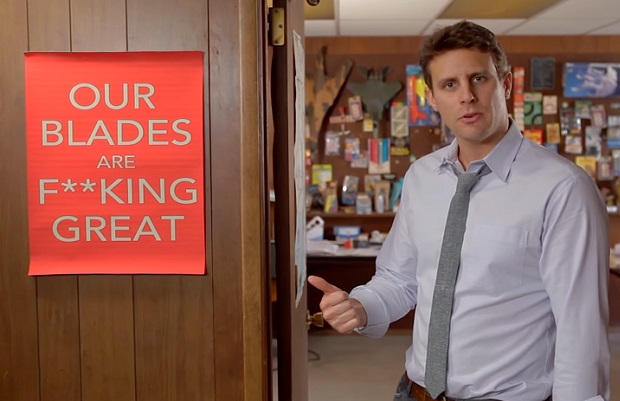Dollar Shave Club, the firm that shook up the men’s shaving industry, has been bought by FMCG giant Unilever for a reported $1bn.

Neither Dollar Shave Club nor Unilever disclosed terms of the deal, but two sources familiar with the matter who were not authorized to discuss it said the privately held start-up’s shareholders will divvy up $1bn in cash.
Founded in 2012 and headquartered in California, Dollar Shave Club has grown into a full male grooming business that has transformed the shaving category with its lifestyle brand with 3.2 million members.
It first reached fame with an ‘Old Spice’ style viral video that challenged leading shaving brands with a new online subscription model:
In 2015, DSC had turnover of $152m and is on track to exceed $200m in turnover in 2016.
Unilever, which already owns personal care products including Axe, Dove and Pond’s, said in a statement Wednesday that Dollar Shave Club has “transformed the shaving category with its lifestyle brand” and has built a membership of 3.2 million since its establishment in 2012. The company had sales of $152 million in 2015.
“Dollar Shave Club is an innovative and disruptive male grooming brand with incredibly deep connections to its diverse and highly engaged consumers,” said Kees Kruythoff, President of Unilever North America. “In addition to its unique consumer and data insights, Dollar Shave Club is the category leader in its direct-to-consumer space. We plan to leverage the global strength of Unilever to support Dollar Shave Club in achieving its full potential in terms of offering and reach.”
Michael Dubin, founder and CEO of Dollar Shave Club, added: “DSC couldn’t be happier to have the world’s most innovative and progressive consumer-product company in our corner. We have long admired Unilever’s purpose-driven business leadership and its category expertise is unmatched. We are excited to be part of the family.”
Michael Dubin will continue to serve as CEO of Dollar Shave Club.
Dubin said the two sides had been talking for months about an investment. Those talks evolved into discussions about an acquisition after Dubin acknowledged how Unilever could help Dollar Shave Club grow into a global brand, beyond its current operations in U.S., Canada and Australia. Dollar Shave Club will remain largely independent to build its brand.
Resetting the shaving market
The deal also means big changes for that sector. With much consumer criticism about over-pricing, Dollar Shave Club grew in the value sector, a space created by premium brands like P&G’s Gillette. The consumer proposition is strong, and online purchase has made it easy to put in place a subscription model that both erodes the market share of the traditional players, and resets consumer expectations of the value of the products. The move from Unilever will undoubtedly attack P&G margins in the sector, and undermine the proposition of P&G’s rival, the Gillette Shave Club.
The company is currently locked in a lawsuit with rival Gillette, which started its own online subscription service in 2014. Gillette, which is owned by Procter & Gamble, alleges Dollar Shave Club stole one of its patents to reduce wear and tear on its razor blades.
Dubin declined to comment on the lawsuit and whether it had an effect on the sale to Unilever.
Subject to regulatory approval, the transaction is expected to close during the third quarter.
The race to ecommerce
Global brand owners like Unilever, P&G and Coca-Cola have talked a lot about ecommerce during the last few years and already put in place early direct-to-consumer offerings. The challenge with direct to consumer is a combination of the lack of distribution infrastructure and the intermittent nature of the products. In consumer packaged goods, there are some products, that have a regularity in their use – bottled water, nappies and razors – that become perfect candidates for subscription commerce.
This acquisition by Unilever is more than a toe in the water for subscription commerce. It should be seen as a deep dive, getting immersed in the space and learning from the young challenger brand. Unilever brings to the deal the scalability of a business with a big footprint in more than a hundred countries and a way to leverage their agency networks. The business has been gradually developing direct to consumer offerings like it’s Maille premium dressings brand, but this is the first mass-market deal.
